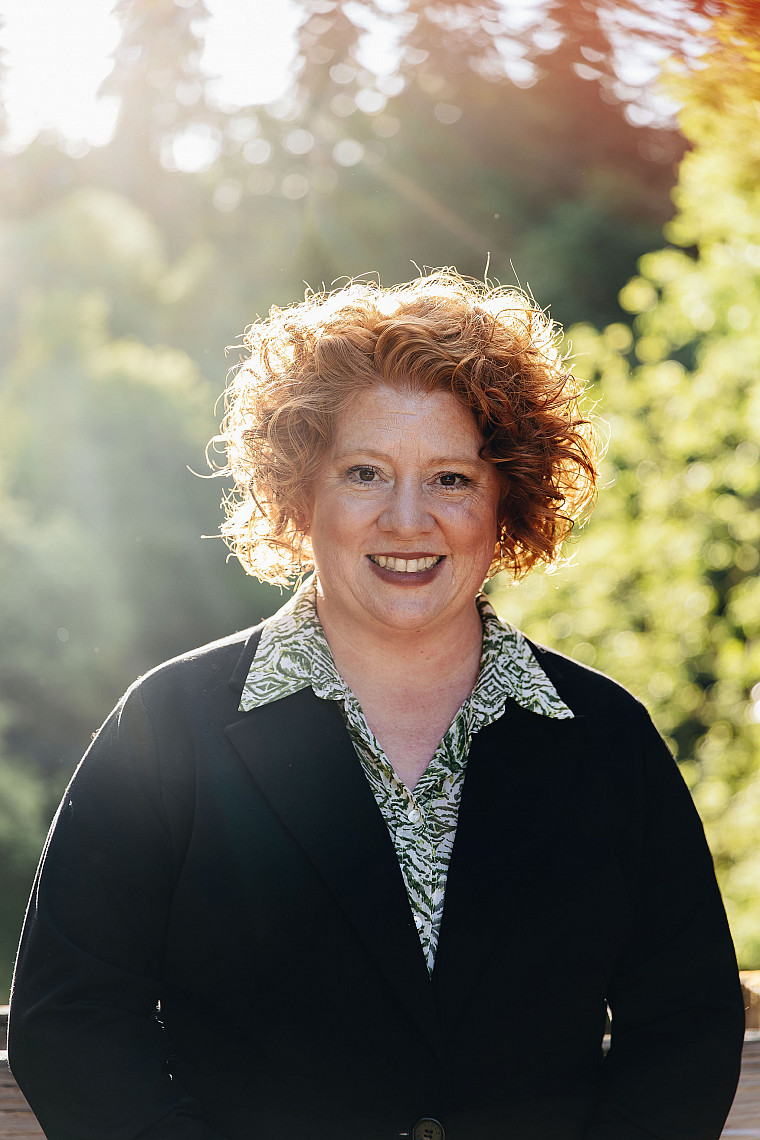A New Gateway to Practice: Uncovering the Student Experience of SPPE Bar Licensure
One of the first Oregon graduates to elect for the Supervised Practice Portfolio Examination (SPPE) pathway to licensure reflects on her experience; professors explain the importance of this pathway for diversifying the legal profession.
Open gallery

The Supervised Practice Portfolio Examination (SPPE), an alternate pathway to Bar licensure in Oregon, is the first of its kind, allowing law school graduates to forgo the Bar Exam in favor of a supervised portfolio and experience-based licensure pathway. Beth Sethi ’24 is among the first generation of graduates to blaze this trail.
“I feel so lucky to be part of the first group of law school graduates to have this option,” said Sethi. “I went to law school to be an immigration attorney, and being able to get right to work rather than spend several months studying for the Bar feels like a gift.”
Like many students graduating in 2024, the SPPE pathway – announced during the academic year 23-24 – was a pleasant surprise to Sethi. It offered a chance for her to gain real-world training doing what she has spent her law school career working towards: advocating for asylum and family-based immigration.
At this point, students who successfully complete the SPPE will be licensed to practice only in Oregon. “This pathway is perfect for me because I plan to practice immigration law which is a federal practice. It means I can practice in immigration court anywhere in the country with my Oregon license,” said Sethi.
“Immigration law is not tested on the Bar Exam, and neither are many of the skills required to be an immigration attorney, such as highly-specialized legal research and writing, representing clients in court, and counseling clients,” said Sethi. “I will get to learn those skills hands-on during the time I otherwise would have been studying for the Bar.”
Sethi’s sentiment echoes what many have voiced about the Bar Exam in recent years, questioning its accessibility and practical value to the professional experience. Historically, the Bar Exam has imposed barriers to licensure for people of color, first-generation law students, people with disabilities, and people from low-income households. In this way, the SPPE doesn’t just represent an alternate pathway to licensure, but also an opportunity to reform and diversify the legal profession.
“This pathway plays to the strengths of many students, without financially burdening students with the hefty expense of preparing for the bar exam,” said Sandy Patrick, Professor of Lawyering and one of the L&C faculty members serving on the Oregon State Bar Licensure Pathways Development Committee. “With the SPPE, students can demonstrate the skills and knowledge needed to practice law. In addition, the pathway does not give an advantage to students who can buy more expensive study courses or who can afford not to work during the three months of bar exam study.”
In short, SPPE gives students options to select the best path for them. “What Oregon is setting up is a system where applicants to the Oregon Bar have options for how they demonstrate their competence to practice law,” said Professor Jo Perini-Abbott. “Empowering applicants with that choice should reduce the number of false negatives that occur with the traditional bar exam which keep individuals from practicing who are ready, capable, and competent to practice law.”
For students interested in pursuing this pathway, Sethi recommends finding a supportive workplace early and seeking out opportunities to get experience while in law school. “I work at an immigration law firm and my employer was willing to take this route because I had already worked for him for 18 months. He already knew what kind of work product I produce and that we work well together,” said Sethi. “If someone is interested in pursuing the SPPE, I would recommend looking for work while still in law school in order to give your employer a chance to see what kind of worker you are.”
To learn more about SPPE, visit our website here.
Law Communications is located in room 304 of Legal Research Center (LRC) on the law Campus.
MSC: 51
email jasbury@lclark.edu
voice 503-768-6605
Cell: 626-676-7923
Assistant Dean,
Communications and External Relations, Law School
Judy Asbury
Law Communications
Lewis & Clark Law School
10101 S. Terwilliger Boulevard MSC 51
Portland OR 97219

